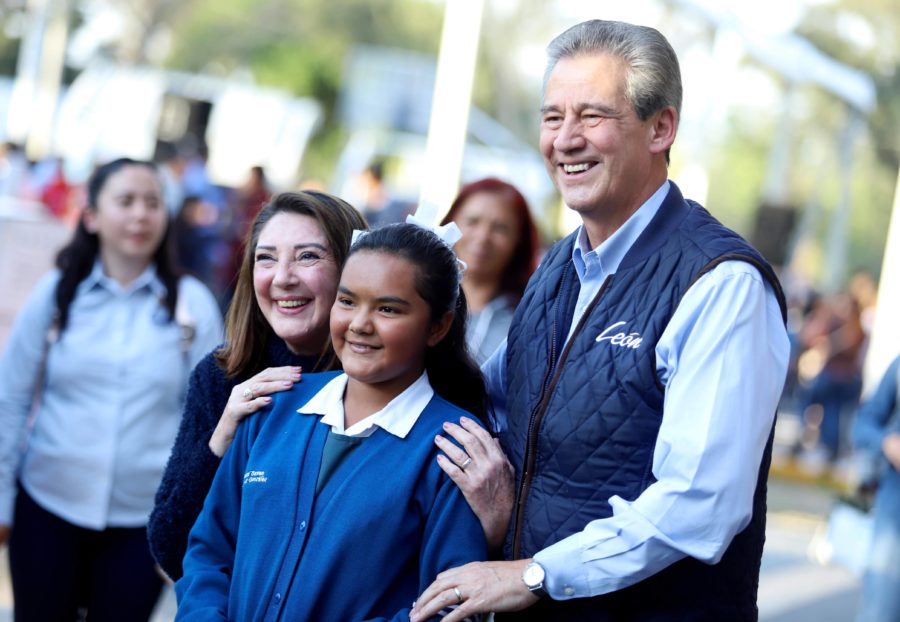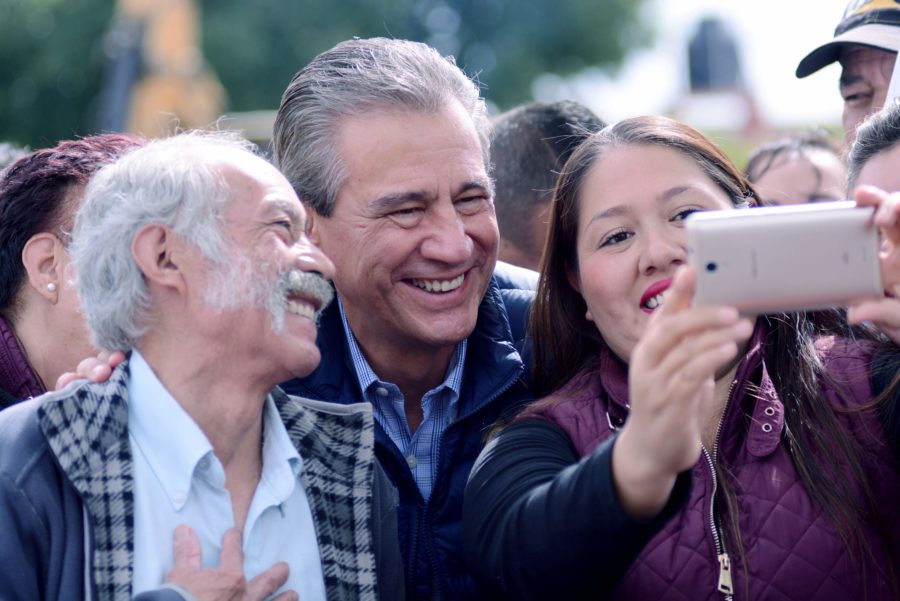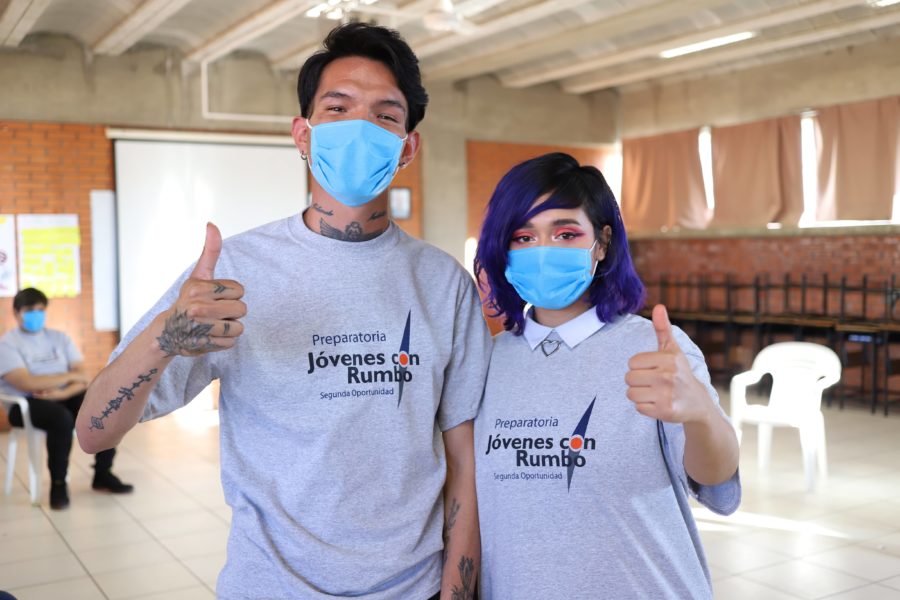
Interview with Mr. Héctor López Santillana, Mayor of León-Guanajuato
Check out the interview with Mayor of León-Guanajuato, posted in the IAEC Bulletin 32!
How would you describe the city of León?
León is known as the “Cradle of the Free Municipality”, due to an event that took place on 2 January 1946, in which the people of León sacrificed their lives so that their decision in the elections would be respected.
We have faced wars, epidemics and pandemics, floods, and economic crises, but we have managed to get through them all thanks to the solidarity and synergies between society and government. We don’t wait for others to solve our problems, we act.
This has made León a thriving, prosperous and dynamic city, with people who “push forwards”, that raise their hands and don’t hold them out, that know how to work together, and who have stood up, even when life wanted to bring us to our knees.
In the years that you have been head of the government of León, what are the main challenges you have faced, and which aspects of municipal management have you prioritised?
It is important to mention that it has been six years of work; we were the first government of continuity in León’s history.
This has allowed us to implement and mature a change of model, to include all those who had been marginalised in development. We call this model ‘De la periferia al centro’ — ‘From the periphery to the centre’. We have been making progress in solving the problems of insecurity, addictions and lack of opportunities at the root, and in achieving a lasting peace, where all citizens feel included in development.
What role has citizen education played in this management?
Within the vision of the Educating City, we seek to bring about a comprehensive change starting from the environment; turning citizens into educating agents, transforming our city into an open-air classroom in which each of the principles of the Charter of Educating Cities is promoted and lived.
I have inited citizens not to hold out their hands to receive support, but to raise them and participate. Because an Educating City can be achieved with a critical, constructive and co-responsible vision.
Under this vision, we have implemented programmes such as ‘Promotores Ciudadanos’ [‘Citizen Champions’], ‘Lab León’, ‘Promotores del Deporte’ [‘Sports Champions’], and the inclusion of young people in Citizen Councils, so that we can get to know their vision for the development of an Educating City.
From a wider perspective, what impact do you think the fact of working with the perspective of the Educating City has had for your city? In what way has your leadership as head of local government helped pave the way for this direction?
In the light of the Charter of Educating Cities, we have driven joint work among the different departments of the municipal administration and civil society through the Mesa de Enlaces de Ciudad Educadora [Liaison Committee for the Educating City]. It acts as a beacon where decisions and actions are taken together through the development of public policies with an educational vision.
We have set ourselves the task of systematising and sharing our good practices in the Educating Cities Bank of Experiences, as well as participating in the spaces for dialogue and training that the Association possesses. We have registered 28 projects, the majority of which are implemented by the different areas of the municipal administration, along with four organised civil society institutions.
Why has citizen participation been — and continues to be — an important pillar of your mandate? Could you outline any initiatives in this regard?
 We like to see citizens as agents of change; with their own thoughts, as people capable of analysing and proposing solutions.
We like to see citizens as agents of change; with their own thoughts, as people capable of analysing and proposing solutions.
With this in mind, we implemented a platform with open data on safety, resource use, the environment, etc. Under the ‘Vía Directa’ [‘Direct Route’] strategy, at least once a week, we visited the neighbourhoods and rural communities so that people could present their concerns to us, and, for the first time, we managed to ensure that the representatives of the rural communities could be democratically elected and not appointed by the mayor.
We will continue to work to fight indifference, and I will always invite the people of León to get involved in these issues, because it is only in this way that we can achieve the transformation of our city.
The initiative ‘Redes de mujeres sin violencia’ [‘Women Free of Violence Networks’] won the Award on Good Practices on Civic Education through Participation in 2018. What did this award mean for the city and for the initiative?
The ‘Women Free of Violence Networks’ programme consists of bringing together women from neighbourhoods and communities to prevent violence and foster community organisation and sisterhood. From 2015 to date, more than 18,349 people have joined the networks.
Receiving the award in 2018 gave us the opportunity to position León internationally and to raise awareness about this educational programme. The strategy was featured in an article in the Portuguese indexed journal ‘Kul-tur’, which allowed us to publicise these achievements, and enable them to be replicated in other spaces. Currently, the Women Free of Violence Networks have been replicated in cities such as Irapuato and Guanajuato City. Further, the strategy was adopted by the Guanajuatan Women’s Institute [Instituto Estatal para las Mujeres Guanajuatenses, IMUG], with the commitment to replicate it across the different municipalities of our state.
León leads the Mexican Network of Educating Cities. What potential does this network have to address the problems and needs of member cities?
Coordinating the efforts of the Mexican Network has been a privilege, because it has allowed us to weave a nationwide web of cities that have a shared vision, and that seek to accompany each other in this task. We have worked to increase the number of cities participating in the Network, and have succeeded in integrating four new cities.
In 2019, we hosted the National Congress of Educating Cities ‘Educating City, creating spaces for peace’. The event gathered over 500 participants who, during the two days of meetings, were able to listen to experts, share good practices, and go on technical visits to projects within the city that promote this vision of the Educating City.
In the same spirit of strengthening the training of civil servants in our cities, we signed an agreement with the UNESCO category 2 International Centre for the Advancement of Human Rights to provide a workshop on human rights for civil servants from member cities.
Being able to count on this network has been especially valuable in complex and uncertain times, such as the one we have experienced with the COVID-19 pandemic. From the beginning, we had virtual meetings to share what we were doing. For example, in coordination with the General Secretariat, we organised a webinar with Dr. Joaquim Brugué, an expert in governance, which enabled us to find more appropriate strategies to deal with this global emergency.
We live in difficult times, and local governments have led responses to the multiple crises brought about by the global COVID-19 pandemic. What key factors did your local government take into account in order to stand alongside the people who needed it most, and to fight against increasing inequality?
The pandemic accentuated existing inequalities and led us to accelerate the pace of social inclusion, but it also helped us realise the importance of accelerating digital processes.
That is why we are transforming ourselves as a government that can serve its people, through inclusive urban transport, food security, medical consultations at home, the facility to carry out government procedures remotely, and the adaptation of programmes to a virtual format, so that no one is left without education, therapies, etc.
During the first year alone, we channelled more than 500 million pesos into programmes to deal with the health situation. I highlight the strategy ‘León Contigo’ [‘León With You’], which consists in providing economic support to micro-, small- and medium-sized entrepreneurs in rural and urban areas, as well as temporary employment, support for livestock, and a COVID testing programme in order to detect cases among workers. We have also made efforts to provide food and drinking water to the most remote neighbourhoods and communities.
This was undertaken in addition to an investment package of more than 5 billion pesos, in conjunction with the State, to get the wheels of the economy turning again, and in a bid to get us out of this pandemic as quickly as possible.
Can you explain some of the local government’s successes and lessons learnt during these years in office?
For almost six years, we have been working to transform León into a HUMAN AND SMART MUNICIPALITY, working from the periphery to the centre, being sustainable, inclusive and transparent, employing direct communication channels with citizens, and aiming to ensure a good quality of life and efficient public services.
One of the main achievements is the programme ‘Alumbra León’ [‘Light Up León’]. Five years ago, there were only 200 LED street lights in León, and with this programme, which consists of five stag es, we will reach over 72,000 street lights. Upon completion, there will be more than 90% coverage of municipal street lighting.
es, we will reach over 72,000 street lights. Upon completion, there will be more than 90% coverage of municipal street lighting.
We generated savings of more than 170 million pesos, which are now allocated to social work. In the first nine neighbourhoods that saw the intervention of this programme, the crime rate dropped between 50 and 70% and arrests increased by 25% as patrols were facilitated. We also implemented a Public Lighting Remote Management System to monitor the optimal functioning of the street lights on 21 of the municipality’s main boulevards 24 hours a day.
Security is a priority issue for the Municipality of León, that’s why we created the programme ‘Construcción de Entornos Seguros’ [‘Construction of Safe Spaces’], with the aim of benefiting our educational community and promoting safety with actions such as the construction of sidewalks, the installation of street lights and paving, and the installation of surveillance cameras connected to the Compute, Command, Communications and Control System [Cómputo, Comando, Comunicaciones y Control, C4] in schools located in areas with a high rates of crime, in order to monitor and safeguard students, as well as to ensure a more timely response in the event that a crime and/or administrative offence is committed.
We have also made great progress in security and inclusion with the strengthening of the Police, as well as a new Model of Safety and Civic Justice, and we have rehabilitated the five entrances to the city, constructing more than 76 km of cycle lanes — more than a third of everything that was built by previous governments. We have built affordable housing for people without social security; we have brought drinking water and drainage systems to areas that did not previously have these services; we have made a historic investment in scholarships, infrastructure and equipment for schools (90 million pesos), in addition to supporting more than 1,500 small- and medium-sized enterprises with furniture, equipment and tools.
This year marks the end of our term in office, and while I am not satisfied, I know that I have done everything in my power to make progress, even with the economic constraints we have faced.
Is there any other information you would like to share with the Network?
Thank you to the cities that are joining this effort; to those who have shared their successful experiences, and to those who have allowed us to learn from their best practices. It is this exchange of ideas that will allow us to transform our reality.
Many of the problems we face in cities are rooted in behaviour, culture and values. We must leave individualism and personal interests behind, because the future will depend on the ability to be organised, to live more in communities, to be more participative and practice self-management. That’s why León will continue to participate with great enthusiasm in order to make the principles of the Charter of Educating Cities a reality.
Although we are going through an extremely complex period, the more we strengthen social capital — that is to say, the more citizens get involved in participating, expressing their opinions, criticising, but always contributing — the sooner we will be able to achieve the cities we all long for.
León’s slogan is “El Trabajo Todo lo Vence” [“Work Conquers All”], and with that idea in mind, we will move forward, proposing, sharing and motivating in order to dream as high as possible; because if we can imagine it, we can achieve it.
By category
- Assembly (28)
- Award (27)
- Committee (15)
- Congress (77)
- Event (2)
- Exhibition (17)
- Experiences' bank (32)
- Forum (1)
- Katowice 2020 (1)
- Networks (120)
- Online event (1)
- Out of Category (51)
- Publications (98)
- Training (21)
- Videos (6)
- World International Day (68)
